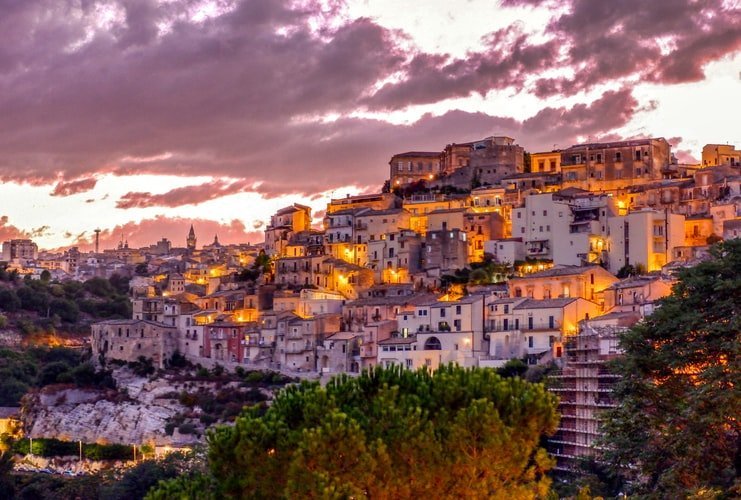Our advices for all Responsible Tourism: from eco-hostels and green suitcases to low impact meals
What does Ecotourism mean? Is choosing to become a new member of the Sustainable Travel family the right thing to do to reduce the impact you have on the environment and on the lives of the locals to a minimum? Today it's inevitable to reflect upon how to combine the passion for travel with the need to safeguard the plant that we live in, but to do so, you need to drastically change your lifestayle first, and then move your new habits to the way your travel. It's not as difficult at is seems, trust us!
To help you come to terms with this new approach to the world we have prepared a very practical guide on how to get stared on Sustainable Travel, especially for all newbies out there.
1. ALTERNATIVE MEANS OF TRANSPORT
Let's start with the basics: every trip starts with someone physically moving from one place to the other, and it's in this first leg of your holiday that you release into the enviroment the 75% of carbon emissions of your entire journey. The first step into a "cleaner" direction is thinking about which methods of transport are the most ecological.
The train is the least exhaustive means of transport, producing, on average, less than 10 grams of CO2 per kilometre. Travelling by train is not only incredible respectful to the environment, but it can also be an unexpected adventurous experience, especially if you're enjoying your first InterRail. Different railway companies even offer discounted rates for youth, groups or those who book in advance.
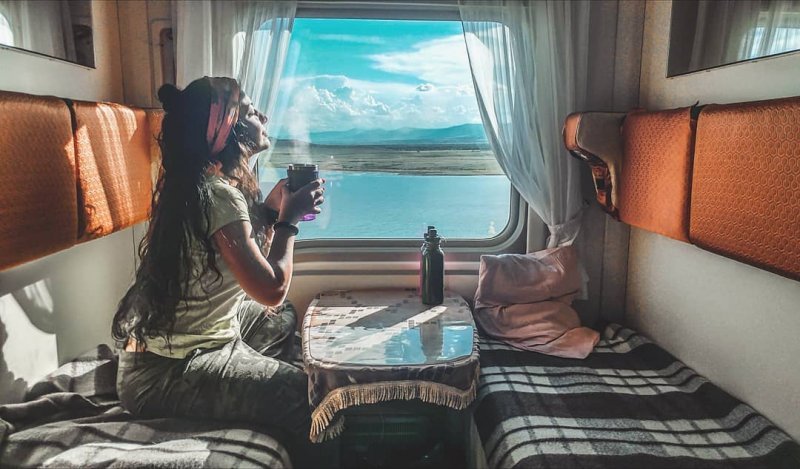
A cabin on the Trans-Siberian: Instagram @diarywings
In second place, we find the boat or the ferry, ideal solutions for when you want to visit islands (for example Corsica, Sardinia, or England...), but also quite practical to move from one city to another (for example from Helsinki to Tallinn). If this doesn't fit with your budget, you could always try to find out if the bus works better for you. Sure enough there has been a huge bus sales increasing, especially thanks to all those new companies that offers super discouted tickets to travel around Europe, Flixbus and Eurolines above all.
If for some reason you prefer to travel by car (some places aren't so easy to access with these other methods of transport), why not try carpooling? With Blablacar, one of the leaders in the market, you can easily indicate where you want to go and the app matches you with people who are planning the same journey and can offer you a ride. At that point you can read the reviews of the driver, decide if it works for you and book. Carpooling is both ecological and economical, as well as being a great way to get to know other people whilst travelling!
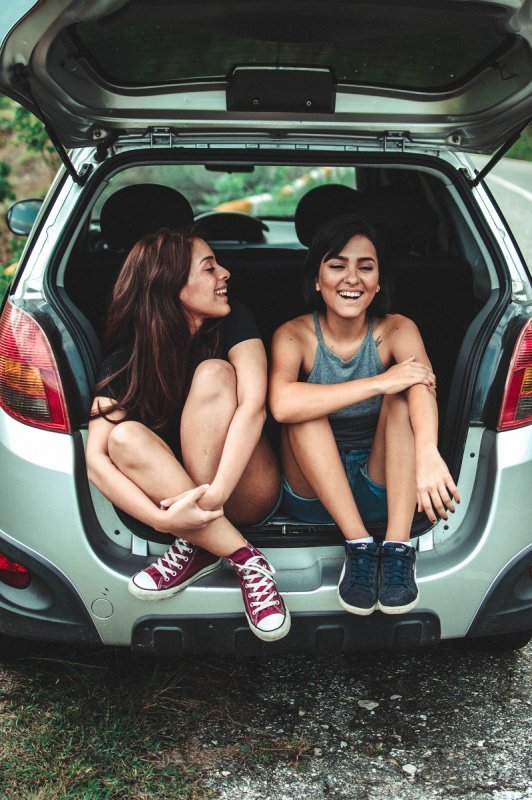
Carpooling can be a way to form friendships with interesting people: Instagram @_jorgesvd
Obviously, if we're talking about 100% Sustainable Tourism, nothing beats travelling by foot or by bike! If the trip you intend to do isn't of great distance this is definitely the best choice, an experience you should try at least once in your life. In these times, where everything is hyper-fast, the idea to opt for a "slower" trip can be not only ecological and economical, but also spiritually stimulating. The important thing will no longer be to see all the pretty attractions but to enjoy the journey itself, the people that you meet on the street, the small centres that you discover on the way... to sum up, a tourism that puts the journey first.
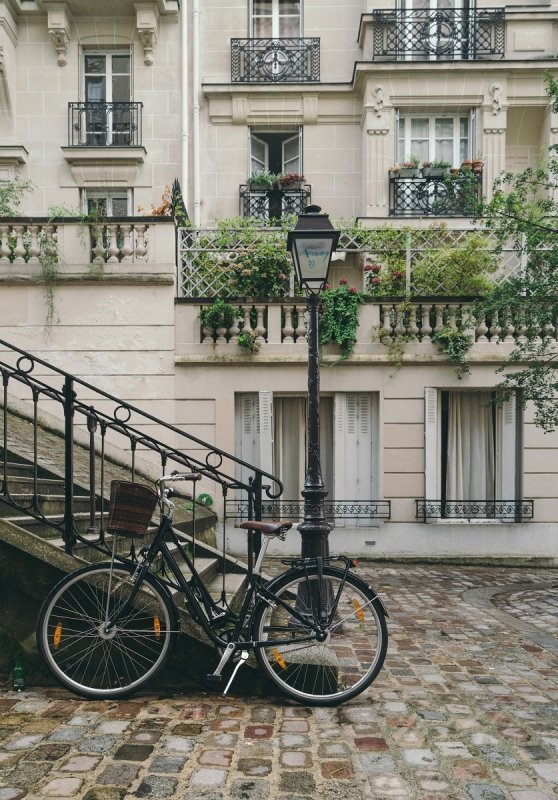
The bike is the ideal way to travel sustainably: Instagram @heytowner
2. HOW TO PACK AN ECOLOGICAL SUITCASE
Even the suitecase plays its part in actively contributing to a more responsable tourism. First of all, let us say that clothes shouldn't be chosen only by following the latest trends, or bagging the best sales, but paying attention to how the things we wear have been produced as well. Clothes have a direct effect on the environment and their production method has a direct impact on the population that works to create them. We recommend installing the app Good on You, a fundamental instrument to choose brands that respect their workers, the environment and the protection of animals.
Regarding your travel bag, look at these eco-friendly musts that you should never miss out on:
- The soap that does everything: the soap of Dr. Bronner is ecological and multifunctional, ideal for reducing the weight of the suitcase; it acts as soap, toothpaste, detergent, deodorant, shaving foam and...isn't that enough?
- A bamboo toothbrush: we've never thought about it before, but what happens to the handle of the toothbrush every time we need to change it?
- A wooden comb / hairbrush
- A solid organic perfume: it should be sustainable and at the same time nicely smelling!
- A stainless steel razor: goodbye disposable plastic, you will only need to change the blades occasionally
- Biological sun-cream: it's important for your skin, but also because when we swim the residue of the cream ends up in the sea and fills it with pollutants and microplastics
- Aloe vera gel: it's hydrating and santising at the same time
For the girls:
- We advise using the ecological microfibre makeup remover wipes, washable and reusable
- The sanitary towels are comfortable, but there are many other possible hygenic protections (the menstrual cups, the washable sanitary towels etc.): get used to this and then you save money, space in your suitcase and the environment!

The ecological toiletry bag: Instagram @zerowastepath
And if you never want to stay tied to the ground with your phone-charger and other electronic devices, a solar charger is the right thing for you!
3. EATING ECO-FRIENDLY
Even activities such as food-shopping and eating can produce several greenhouse gases. it's then fundamental to choose wisely what you're going to eat: avoid products that come from afar and instead look for traditional local ingredients which have come from less that a kilometre away. It's not just a question of sustainability, you'll also end up eating better and above all learn about the gastronomic culture of the place you're visiting. And if you go shopping, limit your purchasing of confectional products to a minimum, as it's better to buy fresh things in bulk to limit your plastic consumption.
Here is our advice for a travel kit to drastically reduce waste:
- Stainless steel cutlery: more resistant than wood, washable and reusable for life
- Water bottle in stainless steel, or a filter (this last one will be useful if you go to certain places in the world where access to clean water is more difficult)
- Stainless steel lunchbox: to transport your hot meals or your shopping (if they weigh too much then you can use stackable tupperware)
- Fabric napkins
- Grocery bags (constantly reusable even to carry other things around)
- Bee's Wrap: it's a wax film to wrap up food and sandwiches, completely biodegradable
And above all, always avoid waste: bring only the bare essentials with you! You'll definitely travel lighter:)
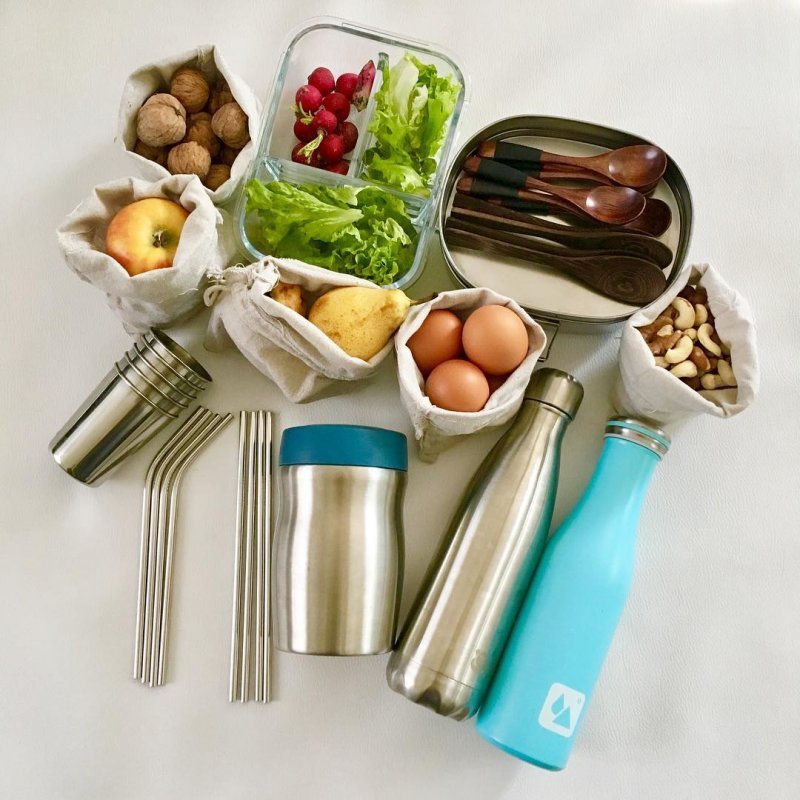
Sustainable cooking kit: Instagram @oumnaturel
And if you want to eat out, there's loads of apps to help you choose eco-friendly restaurants, among which:
- The place to bio: it offers a wide range of restaurants committed to maintaining an ecological approach.
- Vege Tables: its geolocation system puts you directly in contact with biological shops, vegetarian restaurants and horticulturalists.
- Etiquettable: it synchronises the databases of its various partners (Yes We Green, Too Good To Go, Bon Pour Le Climat, VegoResto...) and presents consumers with their own individual interactive map.
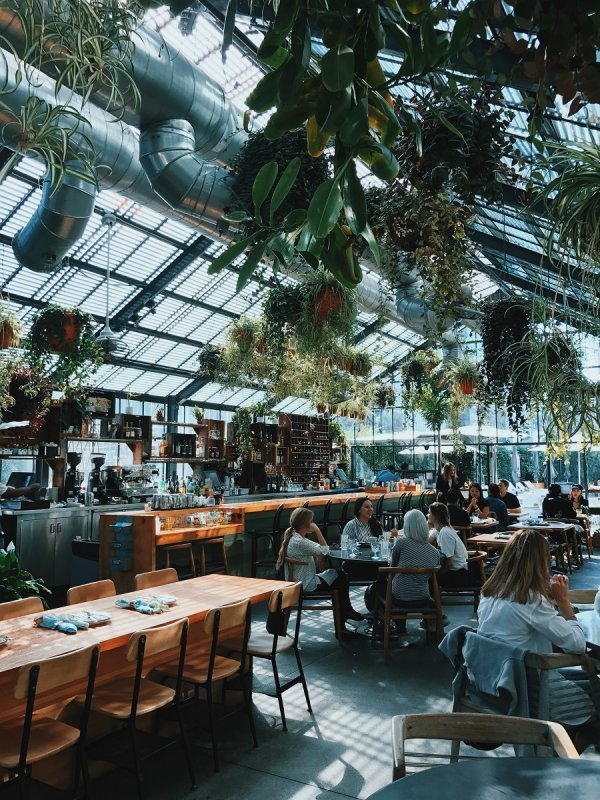
Eco-sustainable restaurant: Instagram @kayleighharrington
4. ECOLOGICAL AND RESPONSIBLE TOURISM
Even when speaking of souvenirs we can reduce our carbon footprint while becoming more responsible at the same time. We highly recommend dive into local activities in order to understand more about the destination you're visiting and avoid the tourist traps. And regarding gifts that you take home, concentrate on local hand-made products and not on the trinkets imported from who knows where. It will cost you a little bit more, but at least you'll have an authentic product in hand and you'll have made a directly positive impact on the local population!
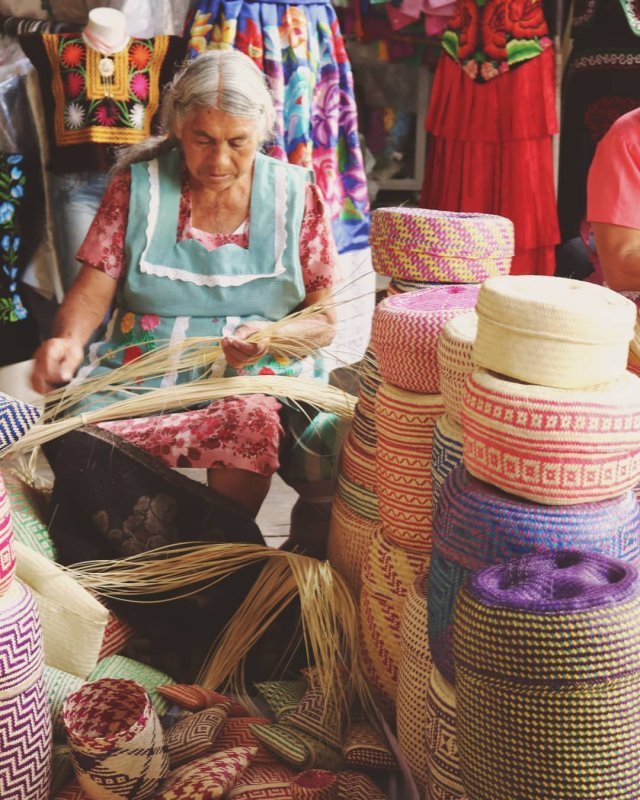
Support the local crafts: Instagram @celineroadtravel
5. ECO-FRIENDLY PLACES TO SLEEP
There are many hostels all over the world that are reviewing their sustainable activities and respect for the environment. It's not possible to give you a complete list in this article, but to give you an idea of this phenomenon we can present you with some of the best eco-hostels in the world, many examples for a virtuous trend that we hope becomes contagious.
The Backpack in Cape Town, South Africa: it's the coolest hostel in the city, with all the services you'd expect of a grand hotel, with rooms designed in Afro-chic style equipped with all the comforts and an incredible swimming pool and a stunning panoramic view. It's particularly known in the international sphere above all for its fair relationship with the local population and for its support of Sustainable Tourism.
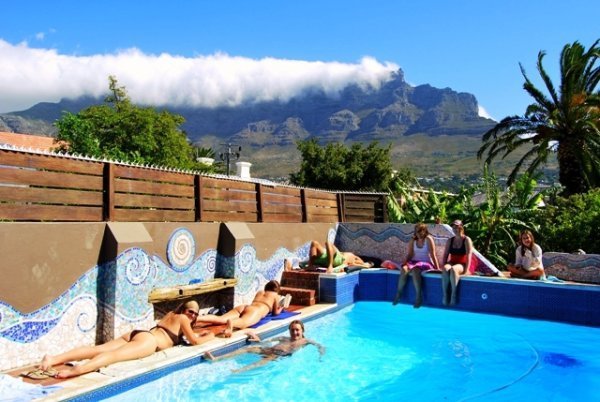
JETpak Eco Lodge in Berlin, Germany: it's an ecological hostel in the green area of Grunewald that uses 100% renewable sources: the heating comes from a wood-burning neutral combustion, hot water from solar panels, waste is differentiated, bottles are returned to the producer to be reused and the foods are composted on site.
Alter hostel in Lyon, France: this hostel uses local ingredients for breakfast, the interior is cleaned with biological and low impact detergent products and on the theme of sustainability, the staff regularly organise conferences open to all the guests. It's therefore a hostel with a participatory vision (organises voluntary activities all over the city) and its supportive of those in need (allows homeless people to stay one or two nights in the hostel).
Tomato Backpackers Hotel in Turin, Italy: this hotel/hostel was the first in the city to be awarded with the 'Ecolabel' thanks to its actions towards reducing its environmental impact: reducing the flow in showers and sinks, energy-saving LED lamps, roof insulation and condensing boiler, no plastic bottles, distributing soap and shampoo in all the bathrooms, insulated windows and a breakfast consisting of local products. The staff also organise events which promote respect for the environment.
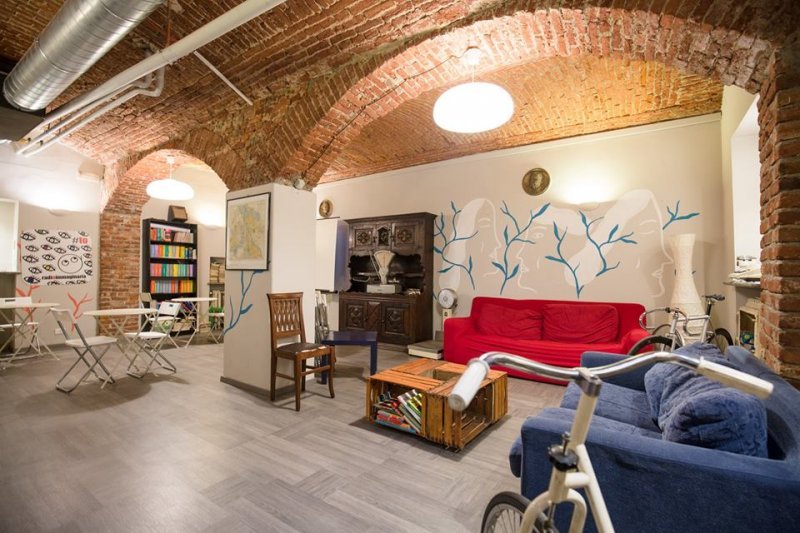
Banana Leaf Eco Hostel in Rio de Janeiro, Brazil: this hostel is surrounded by a lush tropical rainforest and offers its guests a pool with a splendid view of Guaratiba bay. It tries to be as sustainable and autonomous as possible and to have a minimum impact on the local environment: solar energy, use of rainwater and recycling shower water, local composting to reduce waste and enrich the soil, use of certified timber, recycling waste, as well as developing vegetable and biological herb gardens.
Hi Montreal in Montreal, Canada: it's officially known as an eco-friendly hostel. It uses eco-friendly and biodegradable cleaning products, it has abandoned common lights for LED ones, it has installed containers to recycle waste on every floor and in all the common areas and it also provides its clients with information on public transport and carpooling - as well as using grocery bags when shopping for food.

Ok, so now you have all the information you need to start your Sustainable Travel journey. We are sure that the eco-hostels will help you reduce your impact on the environment... and on your wallet as well! If we have somehow pique your curiosity and you're looking for more inspiration on how to approach this new way of travelling, maybe you could be interested in the 10 cities to explore by bike.
